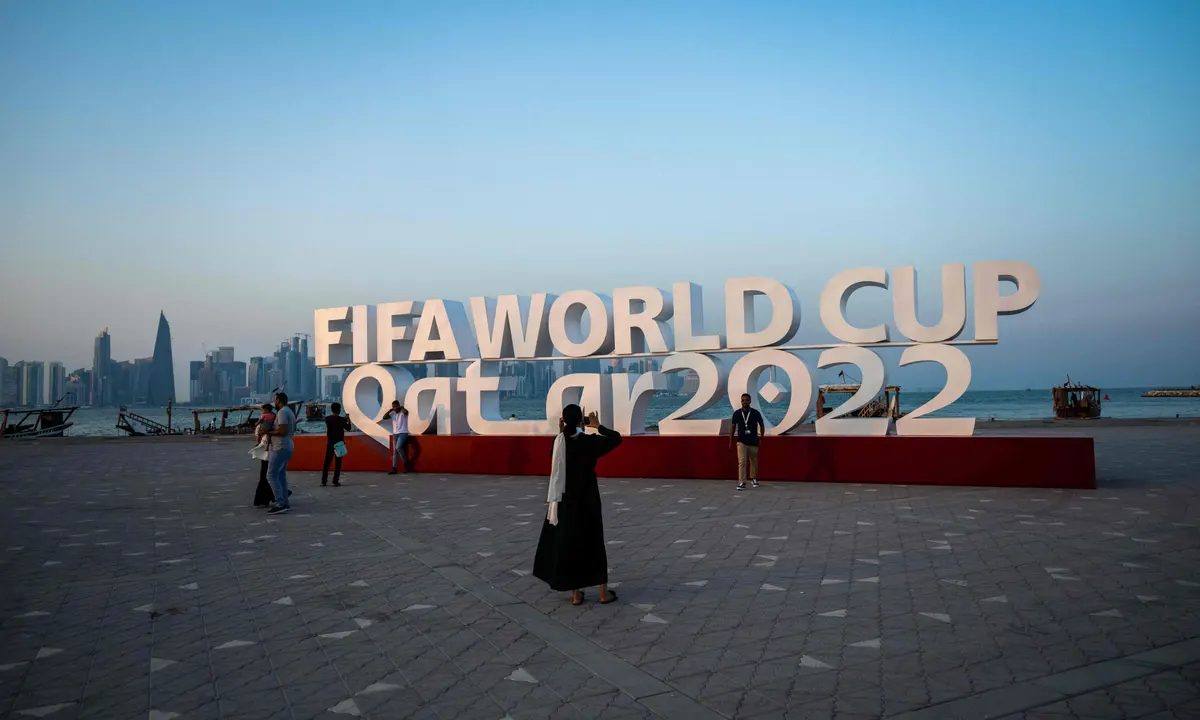By Eirini Tassi,
Another interstate football event, another unsurprising wave of racism. The 2022 FIFA World Cup has recently come to an end, with Argentina becoming world champions once again after 39 years, and the first Latin American country to lift the trophy in nearly 20 years. And yet, in this quadrennial competition of national teams and fans united under the spirit of athleticism, xenophobia and islamophobia remain intact (as do massive human rights’ abuses by Qatar, but that is a whole other story). Let us look at two core examples: Morocco and France.
Morocco
Despite being eliminated, the Moroccan National football team arguably marked history in the Cup for their impressive performance against traditionally strong teams (i.e., Spain, Portugal etc.), and for becoming the first African and the first Arab country to reach the event’s semi-final phase. And yet, several media just could not resist the temptation of showing their overt irritation with that.
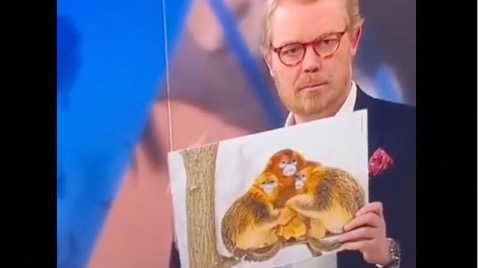
First and foremost, Danish channel TV 2 News taught us that the act of hugging is unacceptable: When there was nothing else to criticize the Moroccan players about, the news platform criticized them for hugging their loved ones after victorious matches. In particular, an anchor overtly equated the act of three monkeys hugging, as displayed in a picture he was holding on-air, with the celebrations of Moroccan players after knocking out Portugal in the semi-finals, many of which were hugging and dancing with their mothers, like Sofiane Boufal. This blatant remark of racism was masked as “humour”, yet proved how insensitive and culturally unconscious hosts can perpetuate harmful stereotypes about a foreign nation to their wide domestic audiences.
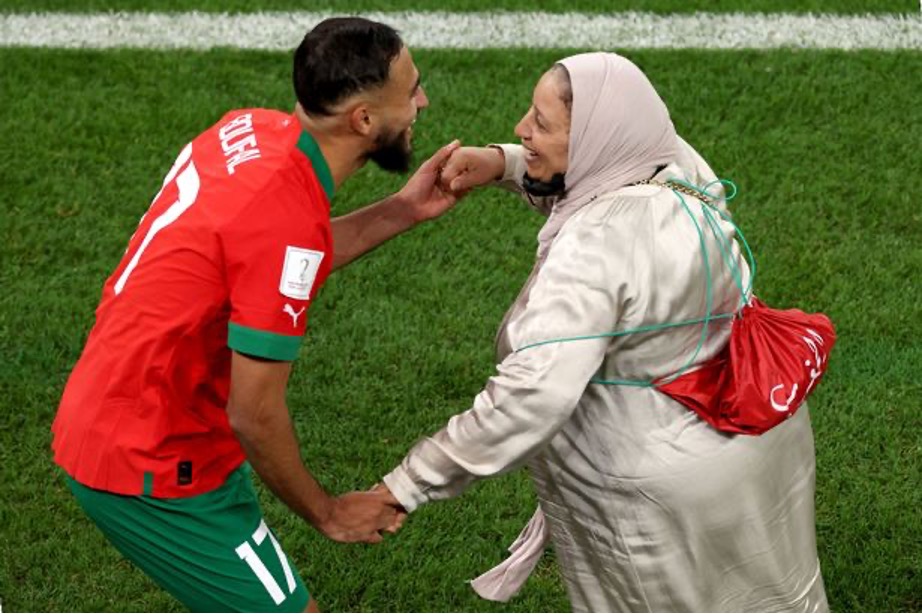
German media outlet Die Welt was also not absent from this anti-celebration coalition. Following their win against Portugal, several Moroccan players celebrated by raising their index finger, an act which symbolizes Tawhīd (i.e. Oneness of God as Allah), and which constitutes a common, diachronic gesture of faith amongst Muslims. Die Welt anchors were quick to equate this religious symbolism with radical-Muslim terrorism, claiming that it is the representative gesture of ISIS, and in effect implying that the Moroccan players’ celebratory manner is insensitive and signifies religious radicalization. Similarly to their Danish counterparts, such commentary shows how prejudiced and culturally-ignorant reporting can create a harmful and unrepresentative image of Morocco.
Finally, the tip of the iceberg: A demeaning caricature. After Morocco got knocked out by France in the semi-finals, popular Dutch newspaper De Volkskrant published an illustration whereby two stereotypically-looking Moroccan men had snatched the World Cup trophy from the President of FIFA, Gianni Infantino. This was meant to indicate that the Moroccan football team got this far merely via bad-sportsmanship tactics and cheating, and it directly contrasts with the international consensus that the players maintained methodic fair-play throughout the competition. This perpetuates harmful stereotypes regarding Moroccan people’s ethos, and in effect conveys large xenophobia against numerous Moroccan foreign nationals and citizens of Moroccan descent that reside within the Netherlands. This goes even further, with the green star of the Moroccan flag, which represents the five pillars of Islam, getting replaced with a hexagram that looks nearly identical to the Star of David, signaling an overt attempt to undermine an integral religious element of Morocco’s culture.
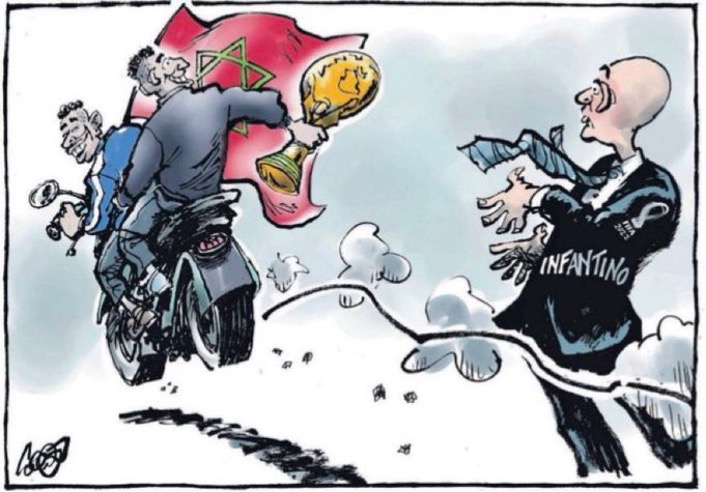
France
France had an impressive run in this World Cup too, coming incredibly close to reliving its 2018 victory after Kylian Mbappé’s three goals against Argentina. Yet, xenophobia and racism lurked around the national football team throughout the tournament.
An exhausting narrative that was following French players’ every winning game was that the national team predominantly consisted of African-born and African-descended athletes and not of “true” European-descended French men. This statement was used in two ways; On one hand by football fans who wished to convey that France is solely winning because “of players of other countries” and would be nowhere that successful with merely European-descended French players, and on the other, by those who wish to argue that extensive African-originated immigration has ruined France’s “European purity”. Both such sides do not merely foster a culture of ethnic -and perhaps even religious- polarization amongst French athletes, but in effect, in making these normative ancestry distinctions, they perpetuate a narrative in which French players of African descend can never be fully accepted as French.
That is not to say that there are not national fans, media and politicians that support and embrace these players as prideful French athletes. But let’s take a look at just how much hate speech skyrocketed against many of them in the Cup’s final: Kingsley Coman and Aurélien Tchouaméni, both French players of African descent, received massive racist abuse on social media for missing their penalties against Argentina. For whomever has followed the 2020 Euro, this is an unsurprising déjà-vu: Saka, Rashford and Sancho, all three being English players of colour, received harsh racist backlash when they missed their penalties against Italy in the event’s final. This shows how impressively quickly a mass of people can turn on foreign-descent players and denounce their national identity when the country’s team loses a game. “If I Score, I’m French If I Don’t, I’m Arab”, said French footballer Karim Benzema back in 2011, who is of Algerian origin. Similar remarks were made by German player Mesut Özil, who has Turkish roots, and who later stopped playing for the German national football team altogether when he received racially-motivated criticism following the team’s loss in a game. This marks a harsh empirical reality for several foreign-descent athletes representing their national teams, as their acceptance by several fans and sections of domestic society is likely conditioned by their success in sports events. If they win, they are worthy representatives of their nation’s athletic skillfulness and of good sportsmanship; if they lose, they are immigrants who just so happen to play for their “host” country’s National team.
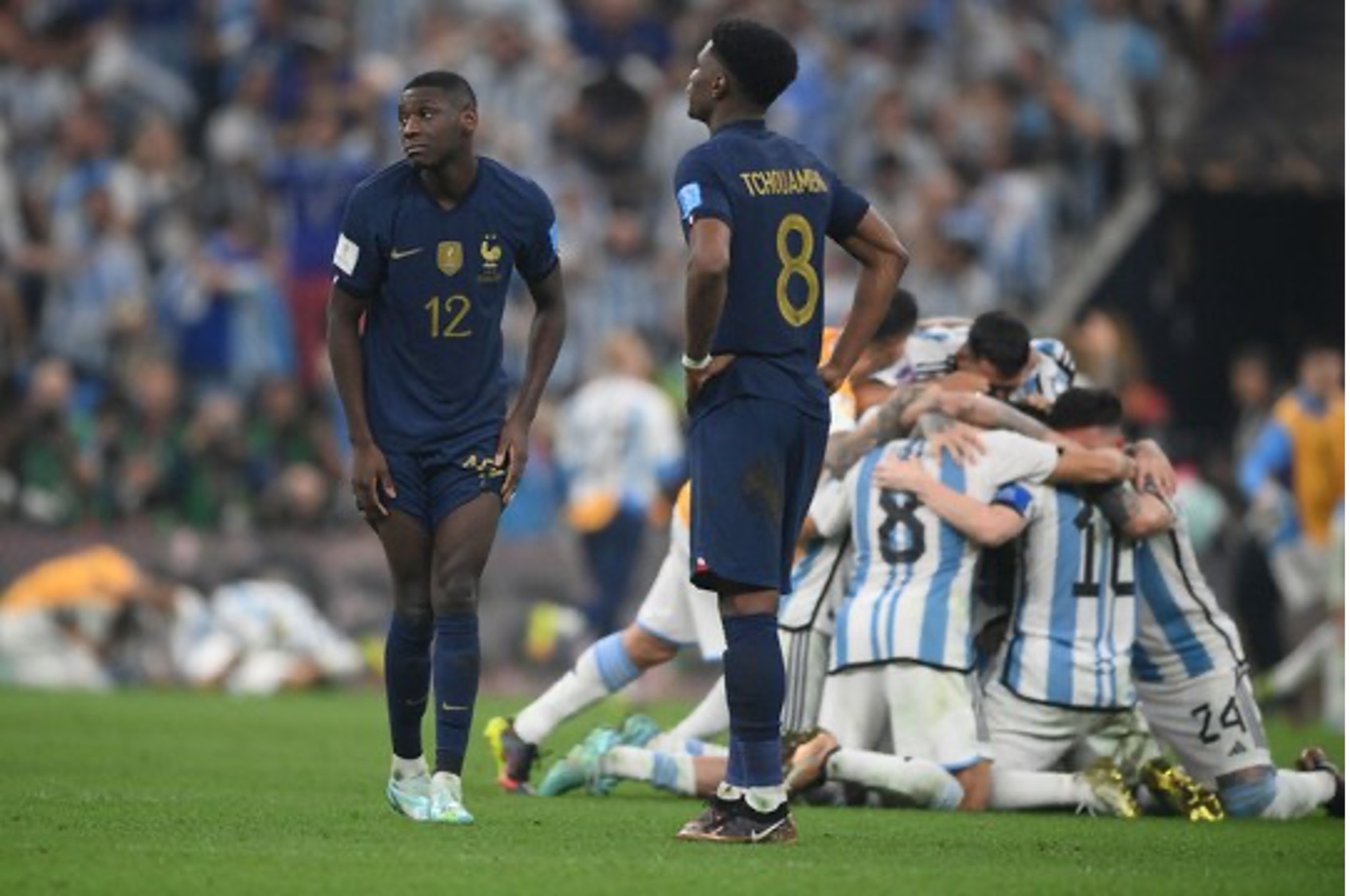
Overall, together with heartwarming scenes of unity and national pride, the 2022 FIFA World Cup also included numerous instances of xenophobia, islamophobia, and cultural undermining, perpetuated by both media platforms and fans. Unfortunately, as previous transnational football events have shown, such racism is actively prevalent in such cross-cultural and cross-ethnic competitions, with usually merely unsubstantial reforms occurring to tackle it. One thing is for sure: Starting from this year’s Champion’s League competition, the international community should put much more emphasis on preventing cultural insensitivity and racism against athletes in such interstate sport events, by monitoring media hosts, but also by holding social media companies accountable when they fail to regulate racially-motivated hate speech in their platforms.
References
-
Enes Taha Ersen, “2022 World Cup marred by racist comments, hate speech”. aa.com.tr. Available here
-
“French Players Face Racism: Online Hate Targeted Coman, Tchouameni For Missing Penalties”. ptv.com.pk. Available here
-
“France’s Coman, Tchouameni face racism after World Cup heartbreak”. dailysabah.com. Available here
-
Mathew Davies, “Sofiane Boufal: The Morocco star who danced with his mum at the World Cup”. walesonline.co.uk. Available here
-
Ryan Kelly, “Explained: Mohamed Salah goal celebrations & meaning behind Liverpool star’s on-pitch gestures”. goal.com. Available here
-
Elis Gjevori, “World Cup 2022: Outcry over German news outlet’s ‘racist’ Morocco coverage”. middleeasteye.net. Available here
-
“Outrage as ‘racist’ Danish channel compares Morocco players’ embrace with mothers to monkeys”. dohanews.com. Available here
-
Becky Sullivan, “Three Black Soccer Players Are Facing Racist Abuse After England’s Euro 2020 Defeat”. npr.org. Available here
-
“France footballers face racist abuse after World Cup final defeat: FFF”. en.prothomalo.com. Available here
-
Shanti Das, “Twitter fails to delete 99% of racist tweets aimed at footballers in run-up to World Cup”. theguardian.com. Available here
-
“Dutch newspaper runs ‘racist’ cartoon after Morocco World Cup run”. thenewarab.com. Available here
-
Somak Adhikari, “You Are French Or German If You Score Goals, Otherwise You Are An Immigrant”. indiatimes.com. Available here
-
Zainab Bukhari, “If I score, I’m French; If I don’t, I’m Arab”: Why France needs to recognise its “others”. tribune.com.pk. Available here

